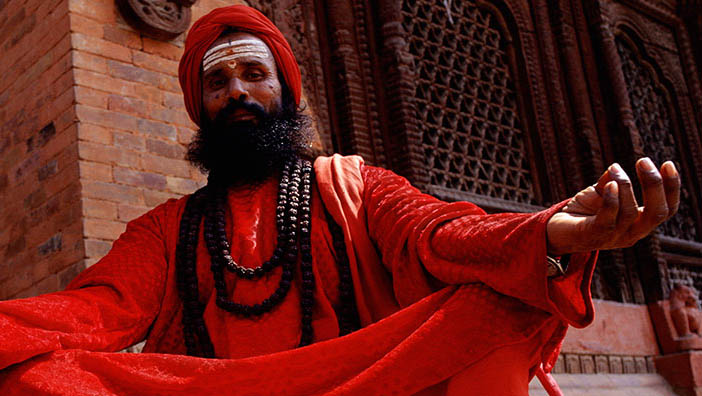The views expressed in our content reflect individual perspectives and do not represent the authoritative views of the Baha'i Faith.
 This is Part 4 of Reconciling the Religions:
This is Part 4 of Reconciling the Religions:
Bigotry and dogmatic adherence to ancient beliefs have become the central and fundamental source of animosity among men, the obstacle to human progress, the cause of warfare and strife, the destroyer of peace, composure and welfare in the world. – Abdu’l-Baha, Promulgation of Universal Peace, p. 439.
For each of us in this remarkable new age in humanity’s history, our most sacred duty means examining our religious beliefs. As Abdu’l-Baha implies above, not only is religious conflict the deepest enemy of humanity, building a framework for a society that can support us all will require ridding ourselves of that conflict.
Only a society built upon deep spiritual truths has any hope of withstanding the tests of time. We can build that society if each of us, no matter what our religious background, no matter how great our conviction, pauses to investigate the foundation of our religious belief in light of the new information about religion that membership in a global society brings us. We must dare to ask ourselves — what part of our religion is essential and what part can be discarded? In biblical terms, we must determine the difference between the wheat and the chaff.
Of course Baha’is do not believe we can accomplish this unaided. We will need a divine Assayer. However, we can and must recognize the nature of our religious dilemma: amidst the host of differing claims within and between religions, the essential must be true, and the truth is one.
The first step in finding that one truth involves questioning our sources of information.
Think, for a minute, about your perceptions of religion; about your general feelings about various world Faiths. Do you think of some religions as familiar and others as foreign? Many people do, so let’s start there.
 We learn that religions are “foreign” from bad information. It usually begins when we accept a partial truth or an exaggeration as a whole truth. Here are a few of those false perceptions: Hindus are polytheists, Buddhists have no God, Zoroastrians have two Gods, Jews have turned away from God, Christians believe nobody but Christians will be saved, Muslims spread their religion by the sword… Indeed, all many people know about other religions are false aphorisms like these. Using these inadequate understandings, many followers of a religion often spend considerable energy belittling people of another religion. The Baha’i teachings overturn this idea completely. Baha’u’llah writes:
We learn that religions are “foreign” from bad information. It usually begins when we accept a partial truth or an exaggeration as a whole truth. Here are a few of those false perceptions: Hindus are polytheists, Buddhists have no God, Zoroastrians have two Gods, Jews have turned away from God, Christians believe nobody but Christians will be saved, Muslims spread their religion by the sword… Indeed, all many people know about other religions are false aphorisms like these. Using these inadequate understandings, many followers of a religion often spend considerable energy belittling people of another religion. The Baha’i teachings overturn this idea completely. Baha’u’llah writes:
That the divers communions of the earth, and the manifold systems of religious belief, should never be allowed to foster the feelings of animosity among men, is, in this Day, of the essence of faith of God and His Religion. – Epistle to the Son of the Wolf, p. 13.
Indeed, Baha’is specifically try to combat and eliminate the religious misunderstandings and prejudices that people hold. Baha’u’llah advises:
Gird up the loins of your endeavor, O people of Baha, that happily the tumult of religious dissension and strife that agitateth the peoples of the earth may be stilled, that every trace of it may be completely obliterated. For the love of God, and them that serve Him, arise to aid this sublime and momentous Revelation. Religious fanaticism and hatred are a worlddevouring fire, whose violence none can quench. The Hand of Divine power can, alone, deliver mankind from this desolating affliction. – Epistle to the Son of the Wolf, p. 14.
Baha’u’llah advises the Baha’is to: “Consort with the followers of all religions in a spirit of friendliness and fellowship,” and Baha’is resolutely believe that:
…religious truth is not absolute but relative, that Divine Revelation is a continuous and progressive process, that all the great religions of the world are divine in origin, that their basic principles are in complete harmony, that their aims and purposes are one and the same, that their teachings are but facets of one truth, that their functions are complementary, that they differ only in the nonessential aspects of their doctrines, and that their missions represent successive stages in the spiritual evolution of human society. – Shoghi Effendi, The Promised Day is Come, p. v.
Read then next article in the series: Hinduism – The Beginnings of Modern Belief
Read the previous article in the series: Comparing Religions, Looking for Truth
















Comments
Sign in or create an account
Continue with Googleor